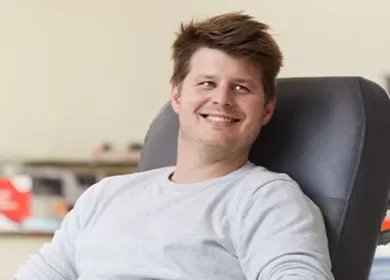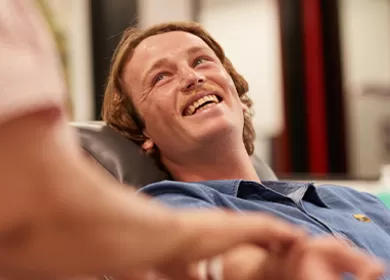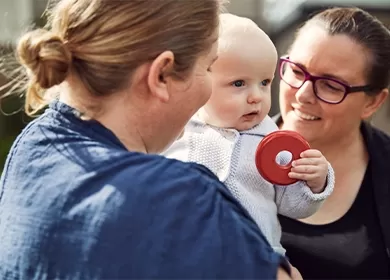From Cord Blood to Microbiome; The evolution of “Rotary’s gift to the people of WA”
In 2005, an incredible 5,000 Rotarians embarked on a lifesaving campaign for the West Australian people.
Launched in celebration of Rotary International’s 100th anniversary, their goal was to fundraise for a centenary project that would benefit West Australians for generations to come.
Following a proposal by Inner Wheel Western Australia, it was first agreed that a facility for the collection and storage of cord blood stem cells would be built with the funds raised.
In the early 2000s, cord blood transplants were proving to be a successful treatment for a range of malignant and genetic blood and bone marrow diseases, including leukaemia, and there was no public cord blood program in Perth.
Over the next five years the 100 Rotary Clubs of Western Australia, fundraised more than $6 million dollars thanks to community and corporate donors, and the state government’s Lotterywest grants.
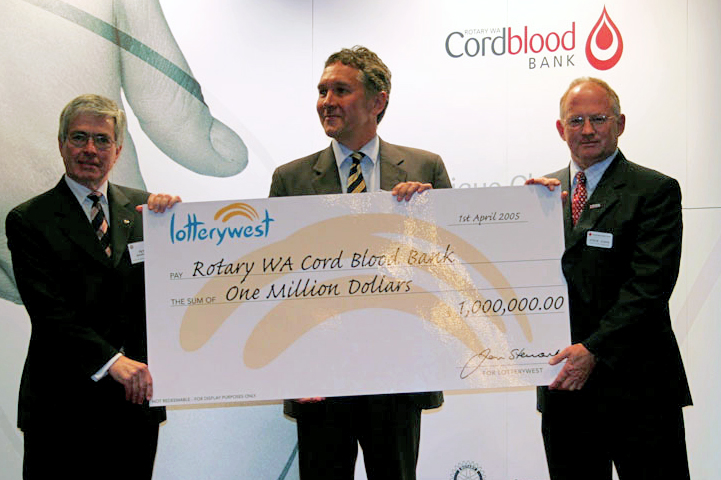
On 12 December 2011, the new facility at Lifeblood’s Perth Processing Centre was officially opened as The Rotary WA Cord Blood Bank by His Excellency Mr Malcolm McCusker AO CVO QC, Governor of Western Australia.
A shift in global trends however saw a significant decline in demand for public cords in Australia. Latest research revealed that transplants through the bone marrow and stem cell donation method were now the preferred source for stem cell treatment options for bone marrow disease.
This change in clinical practice both globally and locally presented Lifeblood and Rotary with an exciting challenge and opportunity, to find a new lifesaving use for “Rotary’s gift to the people of WA.”
After extensive consultation it was agreed the facility would be better utilised as a multi-purpose centre of excellence for innovative research and ground-breaking medical trials and initiatives.
To better suit this new purpose, it was renamed the Rotary WA Health Innovation Centre in 2019.
Just a few months later, Lifeblood launched its first pilot to be based out of the Rotary WA Health Innovation Centre: Microbiome.
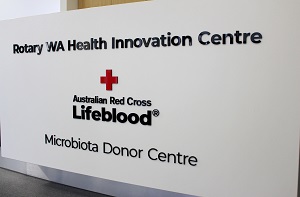
The Microbiome pilot would see Lifeblood collect, process and supply Fiona Stanley Hospital with a reliable supply of donated stool for faecal microbiota for transplants (FMT).
The transplants were to be used to treat patients with serious bacterial infections within the digestive system.
The goal of FMT is to transfer good, healthy gut microbiota from a donor into someone whose current gut microbiota may be making them sick.
This relatively new and innovative treatment was proving hugely successful in clinical trials around the world. However, in Australia clinicians were facing difficulties sourcing and accessing a safe and secure supply of FMT product. This meant clinicians were relying on family donors for direct transplants, and in most cases processing the donation themselves.
As a leader in the field of collecting, testing, and distributing life-saving biological products for over 90 years, Lifeblood had the expertise to provide a consistent supply of donor product and saw this as a fantastic opportunity to deliver another vital treatment to benefit the Australian community.
The pilot was made possible with the support of HBF’s inaugural Community Partnership Grant and the McCusker Charitable Foundation.
Following a very successful pilot, which saw Lifeblood become Australia’s first licensed FMT manufacturer, Lifeblood began offering FMT to hospitals for clinical trials Australia-wide in 2022.
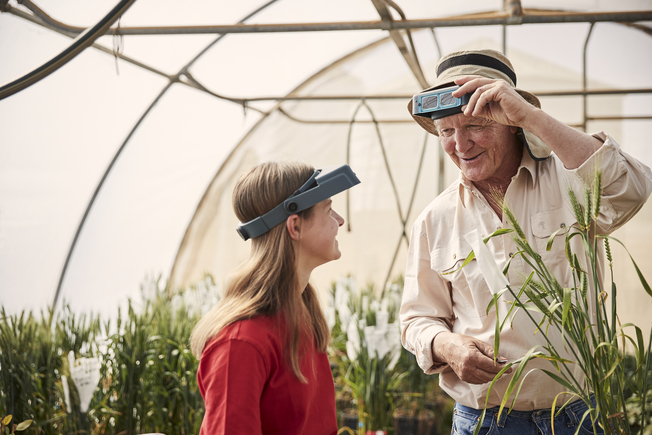
We’re collaborating with clinicians and researchers on a number of Australian-first clinical trials, including a ground-breaking Graft v Host Disease Trial being led by QIMR Berghofer clinician-scientist Dr Andrea Henden at the Royal Brisbane and Women’s Hospital (RBWH).
Lifeblood has also partnered with Curtin University to co-develop an FMT capsule which will be used in clinical trials to treat patients suffering from serious infections of the gastrointestinal tract and to investigate the use of FMT for a range of other medical conditions.
Lifeblood is excited about the future of Microbiome as we aim to reduce the burden of disease in Australia.
None of this lifesaving work could have been achieved without the centenary fundraising project started by the WA Rotarians almost 20 years ago.
The Rotary WA Health Innovation Centre is a facility that will truly benefit generations to come. It’s become a life-changing gift to the people of Australia.
